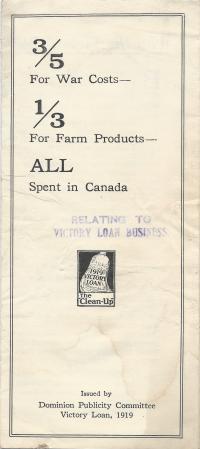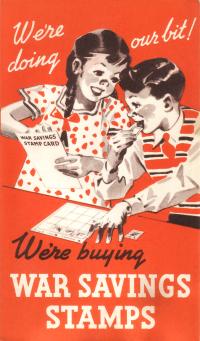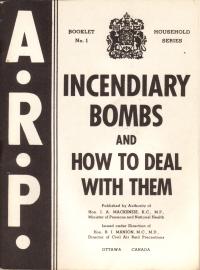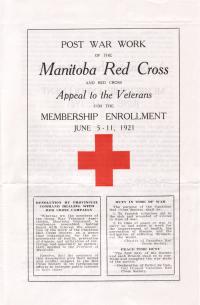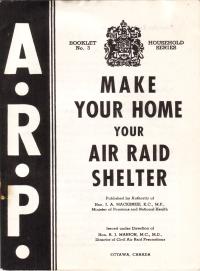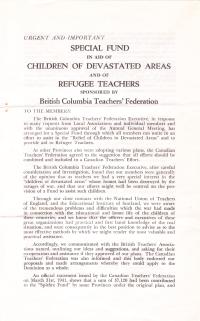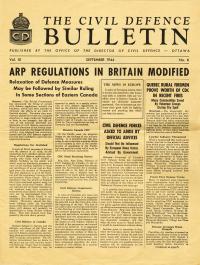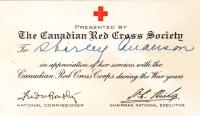Volunteering
Introductory Essay
Peace - and another Victory Loan
Although an armistice ended the First World War in November 1918, war spending continued - for the demobilization of soldiers, for food to send to the devastated areas of Europe, and for veterans' programs. In 1919, Canadians were again asked to support the Victory Loan.
Save while supporting the war
During the Second World War, even children were asked to support the war effort. A child could buy War Savings Stamps for 25 cents each; after saving $4 worth of stamps and sending this form to the federal government, the child would receive a War Savings Certificate worth $5.
Safeguarding your home from fire bombs
Because the German Luftwaffe had used incendiary bombs with such devastating effect on Warsaw, Rotterdam, and London, Canadians were advised to be prepared for such attacks on their homes and businesses.
Clothes for the fashionable soldier ...
Knitting was an enormously popular activity for volunteers, with books such as this one providing patterns for everything from steel helmet caps to amputation covers.
The Red Cross in war and peace
In this appeal for support, the Manitoba Red Cross reminded veterans that, as ex-soldiers, they "have knowledge of what the Red Cross Emblem means in the fullest sense of the word." For that reason, they should support the organization's continuing work for injured and disabled soldiers.
Turning your home into an air raid shelter
While it admitted that the possibility of an enemy air attack on Canadian soil was very remote, the federal government nevertheless advised Canadians to be prepared, by ensuring that their homes offered the maximum protection against bombs.
Helping Britain's schools
In response to the German bombing of British cities that began in 1940, teachers in British Columbia established a fund to aid children and teachers whose homes and schools had been destroyed.
Keeping Canada secure
As the enemy threat against Canada faded, civil defence workers turned their energies to other matters, including fighting forest fires and promoting mine safety.
Helping POWs
Canadians were determined fund-raisers in both world wars, and at any given time energetic groups were trying to raise money for dozens of different causes. This raffle was probably to send food parcels to Canadian prisoners of war in Germany.
Thanks from the Canadian Red Cross
Tens of thousands of Canadian women gave freely of their time and energy during the world wars, expecting nothing in return and often getting nothing more than a card of thanks and acknowledgment.

